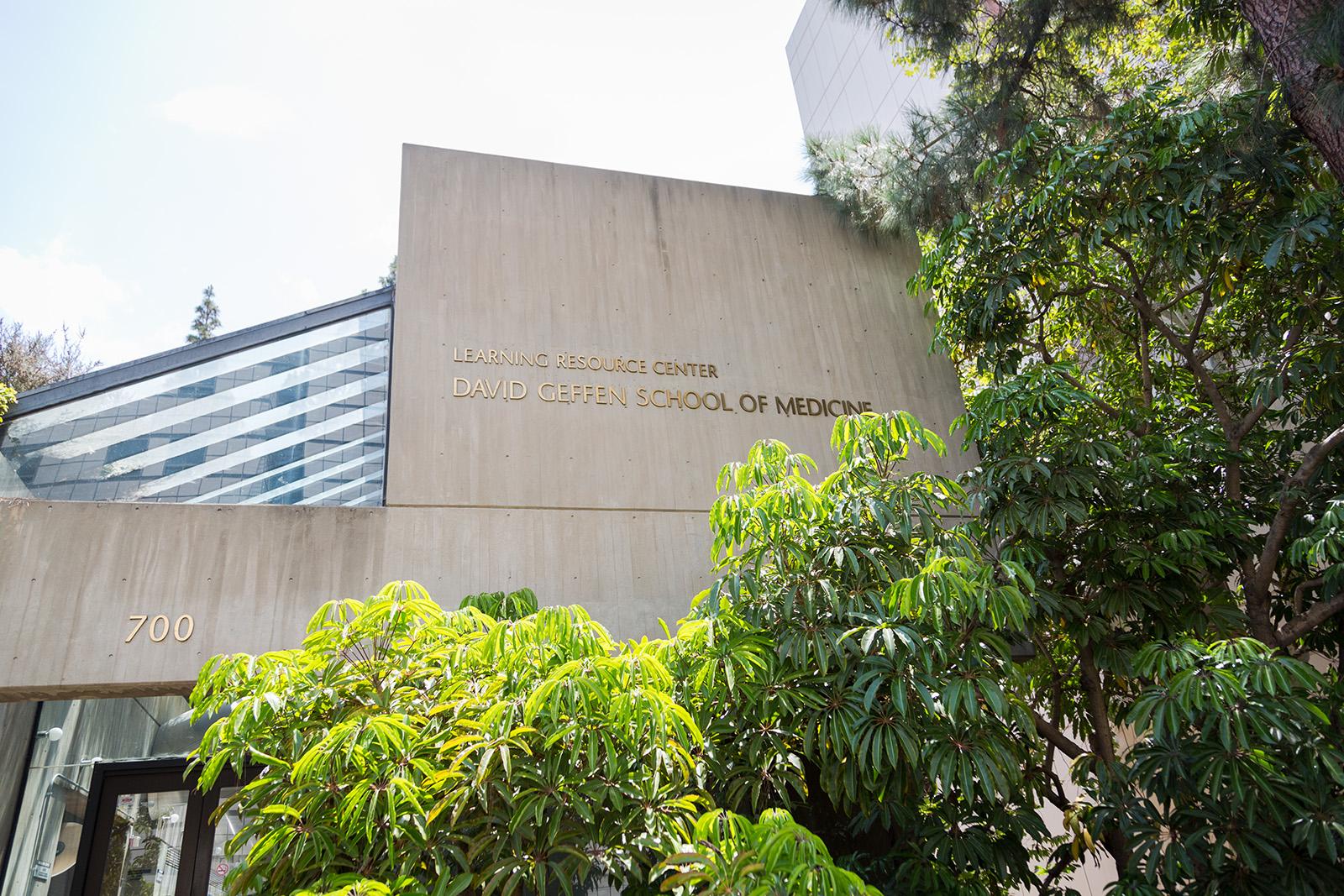UCLA School of Medicine hosts 13th Annual Healthcare Ethics Symposium
The David Geffen School of Medicine is pictured here. The DGSOM’s Professionalism Council hosted its annual Healthcare Ethics Symposium in early April. (Daily Bruin file photo)
By Zoe Wolfers
April 18, 2025 7:57 p.m.
This post was updated April 21 at 12:37 a.m.
The Professionalism Council at the David Geffen School of Medicine hosted its Annual Healthcare Ethics Symposium on April 3 .
Dr. Sadath Sayeed, director of the Global Health Program at the DGSOM and a professor of pediatrics, moderated discussions on medical ethics relating to patient consultation and privacy at the event. The event’s panelists included Dr. Max Jordan Nguemeni Tiako, Jane E. Boubelik and Dr. Walter Coppenrath III.
Brandon Cobb, a medical student at UCLA who helped organize the event, said the goal of the symposium was to facilitate cross-talk between groups across UCLA’s campus about ethical dilemmas facing health care workers.
“It’s super important that physicians are able to put themselves in the shoes of the patients, the nurses, the legal team, the techs, the respiratory therapists, anyone and try to understand everyone’s priorities and how those priorities bolster the autonomy, safety and health of the patient,” Cobb said.
Cobb also said he hopes the topic of provider ethics will become an ongoing discussion within his medical class. He added that he believes it is essential for medical students to step outside their scientific education and keep focusing on the overall picture.
Grace Gallego, a second-year public affairs student, said she chose to attend the symposium because she is interested in the intersection of medicine and social justice. She added her biggest takeaway is that building trust with a patient is vital to achieving an effective ethical outcome.
“Ethics aren’t a professional guideline to follow necessarily but a moral obligation and commitment to a continued relationship with a patient,” Gallego said.
Gallego added that, while she is not sure whether she wants to pursue a career in medicine, she believes that the principles of trust and respect discussed at the symposium are important in any field where there is a power imbalance between a provider and someone getting help.
Nguemeni Tiako, an assistant professor in the division of General Internal Medicine at the DGSOM and a primary care physician, said he believes such conversations are vital in the training of future providers.
“I think really centering patients’ bodily autonomy and just overall autonomy as a person and thinking of them as a moral equal in their care,” Nguemeni Tiako said. “It goes a long way in having patients actually wanting to see you as their doctor.”
Lonnie Chen, a second-year physiological science student, said one thing she took away from the symposium was the importance of not invalidating people’s lived experiences during some of their most vulnerable moments.
Wesley Greene, a second-year neuroscience student, said he attended the event because he had previously heard Dr. Coppenrath speak and had been highly impacted by his teachings. He added that he valued the opportunity to learn in a setting where students do not have to be concerned about grades or outcomes.
“One of the lessons that I’ll carry away is to always continue challenging my thought frames and thought patterns, because, if you don’t do that, then you’ll be stuck in the same kind of logic,” Greene said.
Greene said he was particularly interested in the discussion surrounding the ethics of sharing patients’ stories. He added that the state of ethical dilemmas are always changing because the communities they address are changing as well.
Sayeed, who has been a professor of medicine for 20 years and recently joined the DGSOM faculty, said while he believes medical schools are very good at teaching and training competent clinicians in a scientific sense, he thinks the hardest part of health care provision is how one communicates, engages and shows respect
“How do you think about what it means to be a health care provider that really cares about your patients, and what does that caring actually look like?” he said.
When asked what advice he would give to future students, Sayeed encouraged students to hold on to their passion. He added that although working in health care has highs and lows, he believes the job is worth it.
“Stick with it. It can be a long road, regardless of what path you’re taking.” Sayeed said. “We need kind, compassionate, decent people more than ever in our profession to make sure we’re still a trusted and valued group of people who I think represent the best in humanity.”
